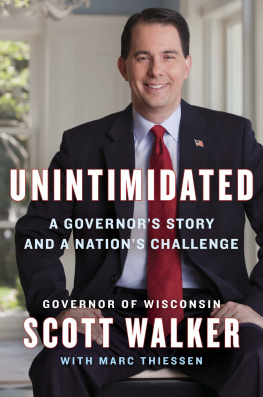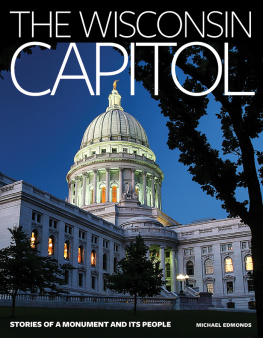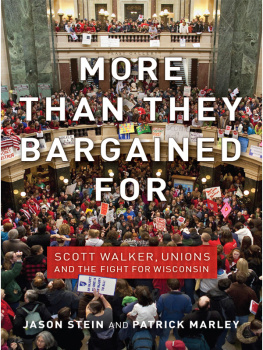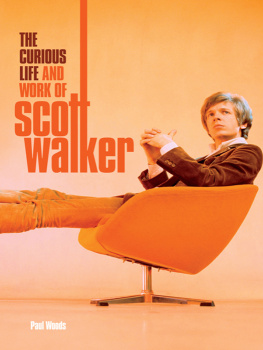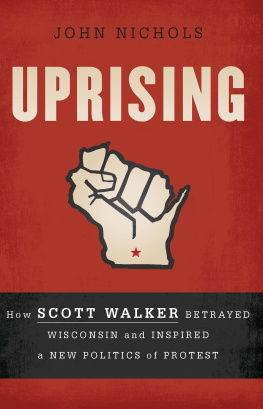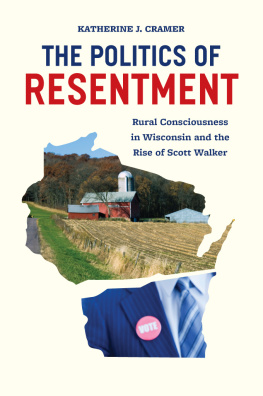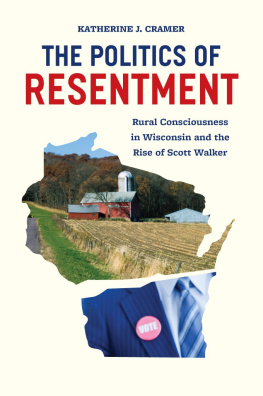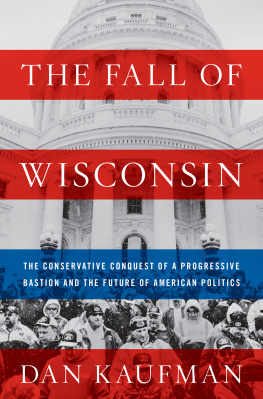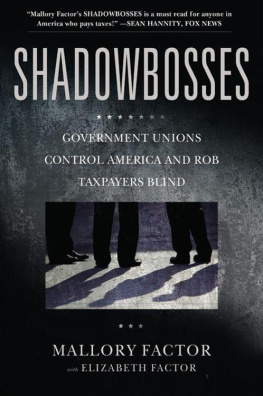USA | Canada | UK | Ireland | Australia | New Zealand | India | South Africa | China
Penguin supports copyright. Copyright fuels creativity, encourages diverse voices, promotes free speech, and creates a vibrant culture. Thank you for buying an authorized edition of this book and for complying with copyright laws by not reproducing, scanning, or distributing any part of it in any form without permission. You are supporting writers and allowing Penguin to continue to publish books for every reader.
: Wisconsin State Legislature (photos obtained through open records requests allowed by state statute)
: The John K. MacIver Institute for Public Policy
INTRODUCTION
If It Can Happen in Wisconsin, It Can Happen Anywhere
I f you are like me, the view from Washington, D.C., these days is pretty grim.
Barack Obama has been elected to a second term. Obamacare will not be repealed anytime soon. Congress has approved massive tax increases. The national debt is on track to double during Obamas presidency. We are experiencing the worst economic recovery America has ever had.a year after President Obama leaves office.
Worse, a recent study by Rutgers University found that six in ten Americans believe that the nations economy has undergone a permanent change and that todays dismal economic situation is the new normal.
Think about that: Our citizens are poorer, our debt is larger, our growth is slower, and our people are less hopeful than at any time in recent memoryand a majority of Americans have come to expect and accept this sorry situation as normal.
Yet President Obama has laid out a second term agenda that doubles down on the failures of his first. And Republicans are being warned that they should not even try to stop him. The GOP, we are told, is increasingly out of touch with the American people. Our once center-right country is moving center-left. We are told that the only way for Republicans to avoid electoral annihilation is to stop opposing President Obama, abandon our conservative principles, and make peace with big government.
Depressed yet? Dont be.
Things may look hopeless in Washington, D.C., but from where I sit in Wisconsin, the view is decidedly more hopeful and optimistic.
Here is a little-reported fact: Outside the Washington beltway, big-government liberals are on the ropes, while conservative reformers are winning elections and policy battles in state houses all across the country.
Consider some encouraging data:
- At the time of this writing, not one incumbent GOP governor has lost a general election since 2007.
- Quite the opposite: In the last four years, Republicans have picked up governorships from Democrats in Iowa, Michigan, Ohio, Pennsylvania, Kansas, New Mexico, Oklahoma, Tennessee, Wyoming, North Carolina, New Jersey, Virginia, Maine, and in Wisconsin.
- The number of GOP governors has risen since 2008 from twenty-one to thirtyjust four short of the all-time high of thirty-four Republican governors in the 1920s.
- When Barack Obama was first elected in 2008, Republicans held just 3,220 seats in state legislatures across the country. Today, two election cycles later, the number is 3,826a net gain of 606 seats.
- In the 2012 elections, when President Obama was overwhelmingly elected to a second term, Republicans saw net gains in thirty-four legislative chambers, including chambers in four states won by President Obama: New Mexico, Ohio, Washington, and Wisconsin.
- When President Obama first took office, Republicans controlled just sixteen state houses of representatives and twenty state senate chambers. Today they control twenty-eight and twenty-nine, respectively. And they hold veto-proof majorities in sixteen statesa gain of three during the 2012 election that sent Obama back to the White House.
- Four years ago, Republicans controlled both the legislature and governors mansion in just eight states. Today, the number is twenty-threeand nearly half our citizens live in states where both the legislature and the governorship are in Republican hands.
Does this sound like the record of a party that is out of touch with the priorities of the American people?
So the question is: Why are so many Republican governors and state legislators winning elections at a time when national Republicans are faring so poorly?
The answer, in part, is that while Washington remains locked in endless battles that most Americans dont see as having much impact on their daily lives, Republican leaders at the state level are offering big, bold, positive reforms that are relevant to the lives of our citizens.
In Washington, politicians fight over fiscal cliffs, debt limits, and sequesters. In the states, we are focused on improving education, caring for the poor, reforming government, lowering taxes, fixing entitlements, reducing dependency, and creating jobs and opportunity for the unemployed.
Just look at what some of our nations Republican reformers have accomplished at the state level:
In Indiana, Governor Mitch Daniels inherited a two-year deficit of $800 million, He ended collective bargaining for state employees, privatized Indianas toll roads, and created the largest school choice program for low-income students in the country.
In Louisiana, Governor Bobby Jindal took on his states long history of corruption and enacted comprehensive ethics reform that restored integrity to state governmentwhile at the same time closing a $341 million budget shortfall and giving $1.1 billion back to the hardworking taxpayers across his state over five years.
In New Jersey, Governor Chris Christie enacted a 2 percent cap on property taxes, passed public employee pension and health benefit reforms that will save taxpayers more than $130 billion over the next thirty years, balanced four budgets without raising taxes,
In New Mexico, Susana Martinez became the first Latina governor in United States history, and turned a $450 million budget deficit into a $200 million surplus. And there are countless other examples.
Here in Wisconsin, we are doing our part as well. When I took office in January 2011, our state faced a massive $3.6 billion budget deficit and a stark choice: We could raise taxes or lay off more than ten thousand middle-class government workers to close the gap, or we could reform the corrupt system of political cronyism and collective bargainingin which union bosses collected involuntary dues from every government employee, and had effective veto power over any changes to their pay, benefits, or working conditionsthat was driving our state into fiscal ruin.

